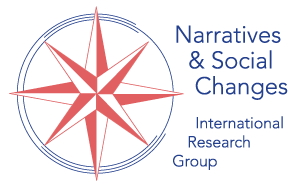All the research areas – each with its own autonomy under the responsibility of the Scientific Coordinator – have as a common element an interdisciplinary approach to narrative, even if this will be declined by differentiating by research area, while remaining the research areas, each transversal to the other.
Theory, Epistemology, Method – Scientific Coordinator, Nikolay Zyuzev (Indipendent researcher – primarily Pitirim Sorokin Syktyvkar State University, Russian Federation)
All the socio-cultural phenomena studied in the human and social sciences have obviously reproduced the different positions of the individual disciplines in the analysis of scholars. On the other hand, the recent debate is linked to epistemology and method, focusing on two aspects: the conjugation between theory and empiricism, and the crisis of the social sciences. With regard to the first aspect, it can be observed that theory, empiricism and operations must necessarily be integrated in a functional way in order to project the researcher’s activity in a direction of positive social change and not remain divided as watertight compartments. Therefore, we can no longer speak of the theory-empirical contrast, but of a continuum of interdependencies that goes from theory to operation and usability, passing through research-action. De facto, this approach would also lead to a positive solution to the crisis in the social sciences.
Methodology and Empirical Research – Scientific Coordinator, Felice Addeo (University of Salerno, Italy)
The study approaches of socio-cultural phenomena and the related methodologies adopted must guide the integration of the subjective and objective dimension. The element that links the two dimensions is the interpretation and construction of reality through the relationships between individuals, as well as between the latter, society and culture. As known, many of the theories, schools and study approaches of the social sciences have founded their bases not only on the interpretation and evaluations of cases, but also on the interpretation of reality data, giving rise to what scholars are known as the quantitative / qualitative querelle that is here to be overcome through the use of innovative methodologies.
Culture, Knowledge, Change – Scientific Coordinator, Hande Eslen-Ziya (University of Stavanger, Norwey)
Culture is an important factor of human action, since it contains both the rules that govern the group and the characteristics that distinguish the group itself. Culture, on the one hand, allows the legitimation of the action, on the other hand, it has an intrinsic value that is independent of its usability or not. These peculiarities characterize the functions of culture, allowing societies to survive, promoting internal integration and reducing the anxiety that can be triggered in individuals in unforeseen or changing situations. This brings to light a direct relationship between culture, knowledge and social change: in fact, in culture there is always a tension between innovation and the tendency to preserve, which calls into question the idea of the static nature of culture, even – that if it cannot be changed quickly as it happens for other elements of society. Also not negligible in this context are the references to literature and to the different forms of art as an expression of individual and collective conditions and positions, even of claim.
Communication and Information Communication Technologies (ICT) – Scientific Coordinator, Michele Sorice (Sapienaza University of rome, Italy – primarily LUISS University, Italy)
Communication systems are in continuous transformation and are increasingly emerging as propellers of processes that allow companies to maintain their stability over time, but also to face a negotiation or revolution of values as a function of social, economic, cultural and above all transformations. technologies within global scenarios. Today there is a transition from the Network society to the Platform society, with social repercussions that the digital revolution has produced in contemporary societies (both for the macro dimension and for the micro dimension), also modifying the languages that take on different forms and representations also in relation to the exercise of power.
Politics, Conflict, Participation – Scientific Coordinator, Lucia Picarella (University of Foggia, Italy – primarily Universidad Católica de Colombia, Colombia)
These three key terms embody the articulated relationship between conflict and participation. To simplify, here the different themes will deal with the problems of political conflict, always connected to participation both as a form of participation itself and as a result of a deficit in the forms of institutional representation. However, it will also take into account other forms of participation that go beyond political parties such as movements and associations, but which play a role and action of mobilization within different societies. How these forms of conflict / participation are narrated and by whom they are narrated determines the outcomes in one sense rather than another.
Rights and Development – Scientific Coordinator, Virgilio D’Antonio (University of Salerno, Italy)
For this Research Area, the attention, for the first item, turns to the cultural study of law, which does not consider legal language and procedural narratives as tools, but focuses on the symbolic nature of language itself and above all on its plural interpretation. ; for the second, it turns to narration, as a research tool useful for the correct use of available resources and the creation and implementation of territorial development processes, both in an economic and community sense.
